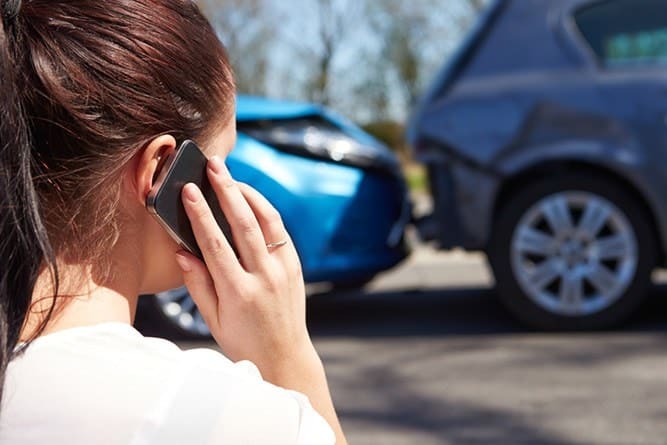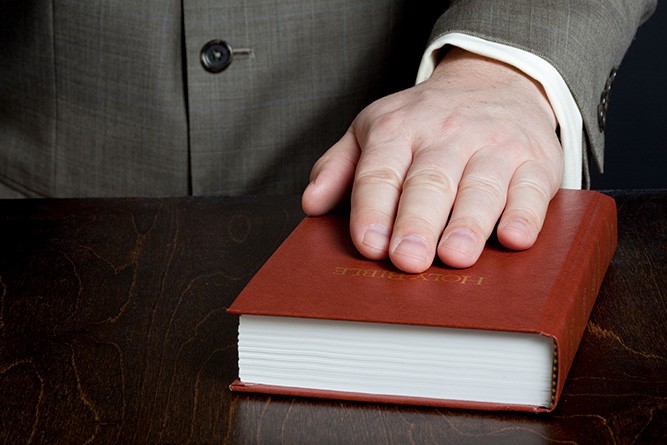To successfully recover damages in an auto accident claim, you must carefully build your case using the evidence available to show the other side caused your injuries. One aspect that is critically important to building your case is the credibility of your witnesses.
You don’t get to choose your witnesses, but it’s essential to have witnesses that are credible. The credibility of your witnesses determines how you use them in your case and ultimately how much weight the jury gives to their statements. There are a number of things to keep in mind about witness credibility in a car accident claim.
GET YOUR FREE CAR ACCIDENT CONSULTATION
NO FEES UNLESS WE WIN!
What Is a Third-Party Witness
A third-party witness is someone who is not a party to the lawsuit. They’re someone besides the people who were driving the vehicles. Because it’s common for the drivers to tell very different stories about how an accident occurred, third-party witnesses can be critical for figuring out what really happened to cause the crash.

What Things Determine Witness Credibility?
There are a number of things to look at to determine how much weight to give the testimony of a witness.
Were They Distracted?
Was the witness watching the crash from a safe distance, or were they running out of the way? Did they have to scramble to protect other people? Whether your witness was distracted at the time of the crash can weigh on their credibility.
Did They See the Crash From Start to Finish?
Sometimes, witnesses see everything that happened from before the impact occurs to the aftermath. Other times, it’s the noise of the impact that turns heads. If your witness sees everything from before the crash through the aftermath, they’re going to be more credible about how the accident occurred than someone who only started watching after hearing the collision.
Are They Biased?
Does the witness know anyone involved in the crash? Were they a passenger in one of the vehicles? It’s not unheard of for witnesses to an accident to know one or more of the parties involved. That personal knowledge can impact the credibility of their testimony.
Do They Have Physical or Mental Health Limitations?
Sometimes, a witness might have a physical or mental limitation that interferes with their ability to observe a scene well. If a witness has eyesight, hearing or cognitive problems, they may not experience or remember an event in the same way that others could. It’s important to assess a witness for vision, hearing, and even mental limitations that can call their testimony into question.
Does Their Criminal History Weigh on Their Honesty?
If a witness has a criminal history that involves dishonest behavior, that can weigh against their credibility. Nevada has rules in place for when you can use a witness’ criminal past to attack their credibility. If their criminal history includes theft, larceny or fraud or if they have a long history of severe felony offenses, the jury may not give their testimony much weight.
How Well Do They Remember Details?
A credible witness is going to remember the event in some detail. When an attorney asks follow-up questions, they’re going to be able to give a solid answer. However, no witness is going to know all of the answers to every question. When you’re assessing the credibility of a witness in a car accident claim, their ability to remember details without embellishing is helpful to evaluate their testimony.
Has Their Testimony Changed?
A person who’s telling the truth should tell the same story again and again. They shouldn’t change their story. If a witness changes their version of events, it’s a sign that they’re not credible.
The Trier of Fact Weighs Witness Credibility
Ultimately, it’s up to the person who decides the case to determine whether each witness is credible and how much weight to give their testimony. In the case of a jury trial, that’s the jury. If it’s a judge deciding your case, it’s the judge who weighs witness testimony.
Your attorney can make arguments to the jury about the credibility of a witness. If it’s a jury that’s deciding your trial, the judge can’t tell the jury who to believe. It’s also not just a matter of who has more witnesses. Instead, the jury looks at all of the evidence, and they weigh each witness to determine who wins.
What Creates Discrepancies Between Witnesses?
The fact that witnesses tell different stories doesn’t necessarily mean that one of them is lying. Sometimes, people who are honest and who have good intentions might experience an event differently. Different vantage points, attention, and physical and mental characteristics can all impact how a person experiences an event. It’s up to the jury to sort out all of these factors and decide how to weigh the testimony.
How Do You Put Witness Testimony Into Evidence?
To put witness testimony into evidence at a trial, you must call the witness to the stand. They swear to tell the truth. Then, you have the chance to ask them questions.

When you’re done asking questions, the other side has a chance to ask them questions too. It’s not enough to submit an affidavit of the person’s statement because that doesn’t allow the other side the opportunity for cross-examination. In most cases, you need to bring the witness to testify during the trial.
How Can an Attorney Help?
An experienced Las Vegas car accident attorney can help you identify witnesses and contact them. With their experience, they can ask the right questions and assess whether the witness is going to help you at trial.
If a witness is reluctant, your attorney can use a subpoena to order them to tell their story. At trial, your attorney asks the witness the right questions and helps the jury understand what they should learn from the witness. By making the witnesses in your casework for you in an effective way, you can work towards the best possible outcome.
Areas We Service in Las Vegas, Nevada
Henderson | Anthem | Summerlin | Paradise | Summerlin North | Summerlin South | Sunrise Manor | Nellis AFB | Desert Shores | Downtown South | Charleston | Richfield | Crestwood | Angel Park Ranch | Queensridge | Casa Grande Pines | Winchester |













